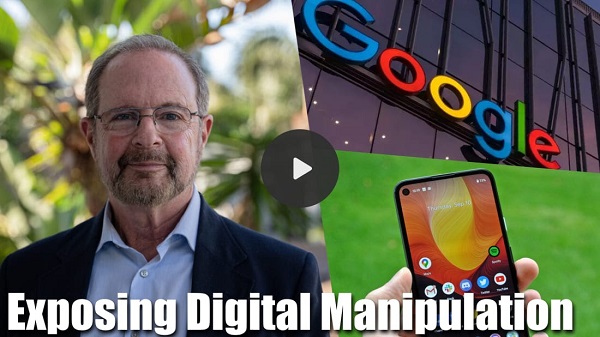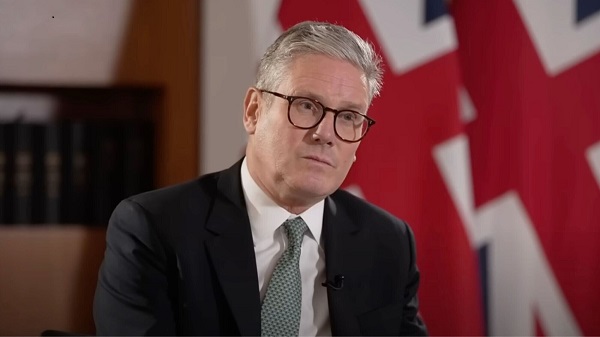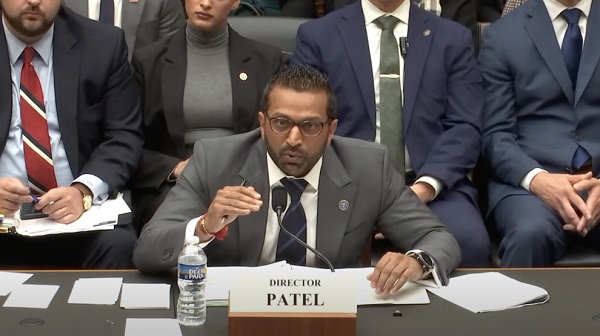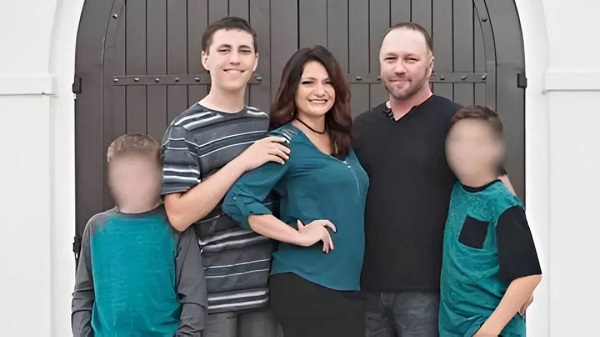Internet
How Google Quietly Shapes Human Behaviour and Thought

Behind convenience lies control, as invisible algorithms, DNA tracking, and blacklists reshape beliefs without notice.
This unsettling video explores the revelations of Dr. Robert Epstein, a Harvard-trained psychologist trained by B.F. Skinner and published in Nature. Once respected in academic circles, he drew the ire of powerful actors when he began asking difficult questions about freedom and technology. His research, whistleblower testimony, and leaked documents expose how Google evolved from a search engine into a system of mental manipulation: filtering results, harvesting DNA data, and quietly undermining free choice.
After publishing these findings, Dr. Epstein reported six incidents of threats and intimidation, a sign of just how dangerous his work had become to entrenched power.
The video above was produced by the channel Video Advice on YouTube: (Watch Original Here)
To learn practical ways to push back against the expanding surveillance grid, listen to my conversation with Hakeem Anwar, an expert in decentralized technology.
The Search Engine Manipulation Effect
In 2015, Dr. Epstein documented what he called the “search engine manipulation effect” (SEME). His experiments showed that simply reordering search results, placing favorable links higher and critical ones lower, could dramatically shift opinions. Among undecided voters, preferences moved by about 20%, with some controlled trials reaching 80%. The same effect appeared even on apolitical subjects, proving that it could influence judgment across a wide range of issues.
Nearly nine out of ten participants never realized their choices had been shaped. Replications across multiple countries confirmed the effect, demonstrating that whoever controls search rankings controls much of the political landscape. Later, Google whistleblower Zach Voorhies revealed that engineers had tools to apply or remove ranking bias with a single command, allowing the company immense control over the political landscape.
DNA, Listening Devices, and Data Harvesting
Dr. Epstein’s warnings extend beyond search manipulation. Google invested in the DNA testing company 23andMe and launched Project Baseline, a nationwide health data initiative. The system combined genetic information with behavioural patterns, while framing it as a service to improve health: mapping predispositions to illness, ancestry, and family ties. The darker side, however, is that whoever controls this data holds predictive power over entire populations.
A similar pattern appeared in consumer devices. In 2019, it was revealed that Google’s Nest products contained hidden microphones. These were never disclosed to buyers, yet the hardware sat silently in people’s homes, always on and always listening. When the discovery became public, Google insisted it was an oversight in their product specifications… merely an error in documentation.
Surveillance Origins and Blacklists
The roots of the google framework stretch back to the 1990s, when intelligence agencies like DARPA and the NSA funded early internet search tools. Their stated goal was tracking potential bomb-makers, as a matter of public safety, but it also laid the foundation for mass surveillance. Out of these early surveillance initiatives, Google’s PageRank algorithm was born. It was designed not only to rank websites by importance, but also to anticipate user intentions and predict what they were likely to click next.
In 2019, documents leaked by Zach Voorhies confirmed the existence of “blacklists,” “fringe ranking classifiers,” and other tools designed to control visibility. Instead of banning content outright, Google buries it—technically online but practically unseen. Employees are instructed to rely on their own “judgment” when deciding what content to suppress, with no clear standards or oversight. These individual choices are then used to train algorithms, embedding human bias and interests into systems that govern billions of searches.
Monitoring Google for Manipulation
Although Google faces antitrust lawsuits, Dr. Epstein argues that these cases are designed to distract from its deeper operations. Courts avoid confronting surveillance, psychological manipulation, and DNA profiling, leaving untouched the most consequential areas and the tools most likely to be used for control.
To address this oversight, or intentional deceit, Dr. Epstein created the “monitoring project.” It deploys a network of software agents that mimic human browsing, recording what Google displays in real time. The system generates verifiable evidence of bias as it happens, revealing whether certain viewpoints are promoted, buried, or erased.
He warns that Google’s influence is no longer limited to advertising or web browsers. Its true power lies in shaping thought itself. By determining what information people encounter first, or whether they encounter it at all, the company places itself directly inside the process of decision-making. The real struggle is over what he calls “consciousness dominance”: the power to guide how individuals form opinions, how societies make choices, and ultimately, how reality is perceived.
Awareness of the Mechanisms of Control
Dr. Epstein warns that what began as a search engine has evolved into a behavioural weapon. Google not only has the power to organize information but to engineer perception, quietly rewriting beliefs. His warnings remind us that freedom demands vigilance. If we do not question what we are shown, we will continue to see our political landscape, our health choices, and even our grasp of truth rewritten, unaware that it is even happening.
Related Material
|
|
Subscribe to Dr Trozzi.
For the full experience, upgrade your subscription.
International
Trump to Confront Starmer Over UK Free Speech Laws During State Visit

Trump’s tour is reportedly set to double as a rebuke of Britain’s approach to online expression.
|
President Donald Trump’s state visit to Britain this week is shaping up to be less about ceremonial pageantry and more about a bitter dispute over censorship and freedom of speech.
Prime Minister Keir Starmer had hoped to use the meeting at Chequers to press for relief from American steel tariffs and to focus on Ukraine and Gaza, but Washington insiders say Trump intends to put Britain’s clampdowns on speech at the very top of the agenda.
The president will land on Tuesday evening. He will attend the usual state functions, including a carriage procession at Windsor, a banquet hosted by King Charles, and a wreath-laying at the tomb of Queen Elizabeth II before heading to Chequers on Thursday for what now promises to be a fraught meeting.
The free speech battle is not new. According to The Independent, Trump previously “berated Keir Starmer over free speech” during private talks at his Turnberry resort in the summer, according to a source close to the president.
That same source added, “There is absolutely no doubt that free speech is going to be one of, if not the top issue, when the two hold talks.”
Fueling the row are recent cases that have drawn international attention: Lucy Connolly’s imprisonment over a tweet, the armed police arrest of comedy writer Graham Linehan at Heathrow, and the UK’s sweeping Online Safety Act.
Reform UK leader Nigel Farage has already carried the argument to Congress, urging Washington to punish Britain for criminalizing online speech.
|
Censorship Industrial Complex
UK’s top cop wants to ‘stop policing tweets’: report

From LifeSiteNews
By Frank Wright
‘I don’t believe we should be policing toxic culture wars debates,’ said Sir Mark Rowley, chief of the London Metropolitan Police.
In a remarkable shift, Britain’s most senior police officer is to recommend changes to the law which could allow police to “stop policing tweets” within weeks.
Sir Mark Rowley, chief of London’s Metropolitan Police, said he will approach the Home Secretary with proposals which could see police return to policing real-life crime.
Sources close to Rowley told the UK’s Daily Telegraph:
He wants Shabana Mahmood, the new Home Secretary, to change the rules so police officers are not required to record or investigate complaints when there is no evidence the suspect intended real-world harm.
The change would be a remarkable departure from the crackdown on “non-crime hate incidents,” which have seen British people given sentences of several years for remarks made online.
Rowley’s move to change the law comes alongside the UK Labour government’s proposal to introduce digital ID – which could tie access to bank accounts and work to online speech.
Return to common sense policing?
The Telegraph’s source said Rowley “is proposing a shake-up of legislation that would give officers greater discretion to use ‘common sense’ when deciding whether to record and investigate complaints about comments on social media.”
The proposed change follows the arrest of comedy writer Graham Linehan, prompting the Metropolitan Police Chief to respond.
Responding to Linehan’s arrest, Rowley said on September 3 that a return to common sense was needed as a series of high-profile arrests over “non-crime hate incidents” was undermining public trust in the police.
He said the policies of successive governments had left the police in an “impossible position” over hate speech laws.
“I don’t believe we should be policing toxic culture wars debates,” Rowley added in a September 9 report, before claiming the police were not responsible for their actions.
“[O]fficers are currently in an impossible position. I have offered to provide suggestions to the Home Office on where the law and policy should be clarified.”
Telegraph journalist Allison Pearson, who was doorstepped by police last November for a tweet described as a “non-crime hate incident,” responded on September 9 by saying Rowley’s step towards defending free speech was “disingenuous” at best.
“At the risk of being arrested,” Pearson said, “I suggest Met chief Mark Rowley is a total muppet.”
Commenting on the recent arrest of comedian Graham Linehan for online speech, she added, “It is disingenuous in the extreme for the commissioner to say officers’ hands are tied in cases like that of Graham Linehan.”
Pearson explains that Linehan, famous for writing sitcoms, was arrested by five armed police after a “notorious trans activist” reported his tweets to police.
Rowley’s claim is that guidelines to police compel them to treat such appeals as crime reports, leaving no room for discretion.
Pearson then refers to the many real-life crimes to which British police do not routinely respond – even over decades:
It’s perfectly clear that the police have discretion to ignore complaints, even crimes, if they want to. Let’s see now:
Phone theft – ignored.
Shoplifting – essentially legal.
Carjacking – we’ll send you a crime number.
Burglaries – help yourself, lads!
Sexual harassment, child gang rape – er, sorry, cultural sensitivities.
Pearson concludes that the police chief is himself being dishonest – at best – in saying that speech crime laws tie the hands of officers.
For Sir Mark to claim that his officers were unable to use their common sense and ignore a complaint from a notorious trans activist about [Linehan] is to insult the public’s intelligence.
Baronness Winterbourne of the House of Lords responded, recommending that “[i]nstead of blaming Parliament for your officers’ inability to think for themselves intelligently, perhaps you might firmly tell them, please, to stop being stupid.”
En désespoir pic.twitter.com/Dm7XViTZ8s
— Emma Harriet Nicholson (@Baroness_Nichol) September 5, 2025
As the latest Telegraph report shows, government advice to police already exists – which has not prevented the policing of so-called “non-crime hate incidents.”
More than 13,200 non-crime hate incidents were recorded by police in the 12 months to June 2024, a similar number to the previous year, despite new guidelines requiring police to investigate only ‘when it is absolutely necessary and proportionate and not simply because someone is offended.’
Rowley was also recorded on a UK radio show defending the officers who carried out Linehan’s arrest.
Graham Linehan’s case is but one of many in which British people have been prosecuted for online speech. As the Free Speech Union reported in April 2025, new data showed that over 12,000 people in Britain are arrested for speech crimes every year.
Hitchens: Disband the police?
Peter Hitchens, a veteran conservative commentator and staunch Christian, spoke out on GB News – calling for the British police to be completely abolished and replaced.
Peter Hitchens calls for the police to be disbanded and rebuilt from scratch, accusing them of becoming 'a sinister menace to freedom of speech'.
'They’re not responsible for crime anymore. They’re a politically correct body who think they’re policing thought.' pic.twitter.com/EylPbMyviP
— GB News (@GBNEWS) September 10, 2025
Hitchens, a devout Christian, said the British police should be “disbanded” as they have become a “sinister menace to the freedom of speech.”
“They’re not responsible for crime anymore,” Hitchens explained. “They’re a politically correct body who think they’re policing thought.”
He told GB News’ Michelle Dewberry that “the police don’t believe they should be doing what we think they should be doing. They do believe they should be arresting people for incorrect tweets. The only solution is to disband them and start again.”
Elsewhere Hitchens argued this was no novel development, saying this “new style of policing” went back 20 years.
Two-tier Keir Starmer
The embattled Prime Minister Keir Starmer has long been accused of “two-tier” policing in cracking down on “far-right thugs” who commit online speech crimes.
As the murder of Charlie Kirk focuses attention on the toxic speech of the left, Britain’s justice system sees no evil when left-wingers call for the collective murder of people on the right.
Whilst former Conservative councilor Lucy Connolly received a 31-month sentence for an angry tweet about illegal migrants, a councilor for Starmer’s own Labour Party was found not guilty of incitement to violence after demanding that everyone he saw as “far right” be murdered.
Ricky Jones was declared innocent after publicly calling for his comrades to “cut the throats” of the so-called “disgusting Nazi fascists” who were protesting over the murder of children by a man of migrant heritage. Three girls were killed in Southport by a Rwandan youth last July. After stabbing the nine children in a frenzied assault, Axel Rudakubana told police, “It’s a good thing those children are dead.”
When angry protests broke out at the murders, Jones responded on video, saying of the so-called “far-right” protesters: “We need to cut all their throats and get rid of them all.”
Jones was freed, Connolly was jailed.
Talking of calls for violence,
Violent extremist RICKY JONES was released on bail until his trial in January despite the severity of his crime.
Protesters have been jailed for very minor crimes yet their vile ex Labour Party councillor gets totally different treatment.
This… https://t.co/XW4Oo2lB4R pic.twitter.com/7C2PtZL9kW
— Antifa Public Watch official (@UnmaskedAntifa) October 23, 2024
Despite the obvious dangers in preferring the policing of speech to genuine threats and crimes, there seems to be no cause for concern from the point of view of Britain’s prime minister.
During Wednesday afternoon’s questions, Sir Keir Starmer was asked whether he would commit to revising speech laws to “ensure legitimate free expression is protected.”
Starmer replied with a stock response: “I’ve been clear throughout, we must ensure the police focus on the most serious issues and the issues that matter most to our constituencies and all communities.”
He ended by saying he was proud of Britain’s long history of free speech, which he said he would always protect.
“And that includes tackling issues like antisocial behavior, knife crime and violence. And we have a long history of free speech in this country. I’m very proud of that, and I will always defend it.”
-

 Frontier Centre for Public Policy1 day ago
Frontier Centre for Public Policy1 day agoBloodvein Blockade Puts Public Land Rights At Risk
-

 Alberta2 days ago
Alberta2 days agoParents group blasts Alberta government for weakening sexually explicit school book ban
-

 International1 day ago
International1 day agoFrance records more deaths than births for the first time in 80 years
-

 National1 day ago
National1 day agoChrystia Freeland resigns from Mark Carney’s cabinet, asked to become Ukraine envoy
-

 Business1 day ago
Business1 day agoThe Truth Is Buried Under Sechelt’s Unproven Graves
-

 Energy1 day ago
Energy1 day agoA Breathtaking About-Face From The IEA On Oil Investments
-

 International1 day ago
International1 day agoFBI Director Patel challenged on handling of the Epstein files during oversight hearing
-

 COVID-1912 hours ago
COVID-1912 hours agoCanadian gov’t to take control of vaccine injury program after reports of serious mismanagement










